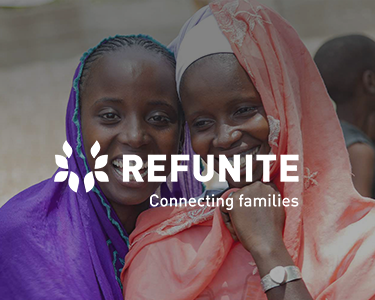
Awatif Albadri and her son, Anas Alhamdani (left), spoke with interpreter Bashier Doss in Chelsea District Court last month concerning her family’s efforts to avoid being evicted. (Pat Greenhouse/ Globe Staff)
CHELSEA — Awatif Albadri survived the Iraq War and the deaths of her husband in a car crash and her son by assassination. On an overcast morning last month, nearly a year and a half after arriving here with three children, she was in court trying to avert homelessness.
Dressed in a black abaya, she sat outside the hearing room, conferring with her lawyer, landlord, a social worker, and a translator. After her husband died in Baghdad in 1994, family and friends supported the Sunni Muslim family so she could stay home and raise her four children.
Now in a new country, she has to rely on a very different support network, one made up of government, social agencies, and generous individuals.
Barely three years after the first Iraqi refugees started arriving in the United States, many have become victims of the worst economic downturn since the Great Depression. At least three Iraqi refugee families in the Boston area have become homeless in recent months, according to Malika Rushdan, a community organizer who runs the Chelsea office of the Islamic Circle of North America, an Islamic advocacy group. Many more have fallen behind on rent and face the same prospect.
“This is the tip of the iceberg. [Iraqi] families are coming to Chelsea on a weekly basis,’’ said Rushdan. “Housing and jobs. That’s what they need.’’
According to the Massachusetts Office for Refugees and Immigrants, 5,836 refugees have arrived in Massachusetts since 2007, including 1,199 from Iraq, the biggest refugee population in the state. Of those, 214 Iraqis were resettled in Greater Boston.
Unemployment and homelessness affect other refugee populations, but those who work with refugees say Iraqis are especially vulnerable. Many, like Albadri, are widows with children but no job experience, a factor that makes it even more difficult to find work. Some have been tortured or had a family member killed, often because that person worked for the US government or American entities.
Advocates ask how the Iraqi refugees can be allowed to slip into homelessness in America when many of them risked their lives or lost family members working for Americans.
“I came here because my sister [was] killed in Iraq,’’ said Ali Fadel, an 18-year-old senior at Lynn High School.
Fadel’s oldest sister, Ban, was a translator for the US government when she was assassinated outside the family home in 2008. Their parents feared they or one of their remaining children might be killed, too, and decided to leave. Now they are struggling to make ends meet.
“I need anything. Dishwasher. Anything. I just need work,’’ said Fadel, who said he has applied at Walmart, Market Basket, Family Dollar, and other stores. His father, who is in his 60s, and a sister have also been looking for work.
“They did this work [for the United States] because they had high hopes for the invasion, and they thought it was all going to be OK,’’ said Bob Carey, director of resettlement and migration policy at the New York-based International Rescue Committee, a nongovernmental organization whose work includes resettling refugees. “They’ve been shocked at how little support they get.’’
In that Chelsea courtroom on March 17, Albadri’s son, Anas Alhamdani, dressed in sneakers and jeans, stood quietly, leaning over his mother’s shoulder. Alhamdani, now 22, became the man of the house in 2006, when his older brother, Aws, was killed by a Shi’ite Muslim extremist.
After arriving here, the family received modest government assistance, but the aid expired nine months ago and Alhamdani’s part-time dishwashing job at an MIT cafeteria couldn’t cover the family’s $1,050 rent, a rate $250 below market.
Landlord Michael Scola allowed the family to stay at the reduced rate longer than the original lease required, but when he didn’t receive January and February payments, he sent an eviction notice.
When word of the family’s plight reached Rushdan, she secured one month’s rent from the Metropolitan Boston Housing Partnership and another month from an anonymous donor in the local Muslim community.
Alhamdani’s job came with membership in Local 26, Boston’s hospitality workers union, whose benefits include free legal help. On their court day, attorney Daniel Lagosh ironed out the final details of an agreement with Scola that would let the family stay and would only incrementally raise rent to market rate over three years.
Albadri was relieved that they wouldn’t have to go to a shelter, but also knew that her family’s reprieve would be short-lived unless at least one of her children could find work.
“I worry about the future,’’ she said outside the hearing room.
Refugees are eligible for assistance from a combination of public and private sources.
The US State Department’s Bureau of Population, Refugees, and Migration provides a one-time “reception and replacement’’ grant that had been $900 per refugee, but doubled to $1,800 for refugees who arrived after Jan. 1. Most refugees are also eligible for various forms of modest assistance, the most common of which are Refugee Cash Assistance grants.
These state grants are available for eight months. In Massachusetts last year, a couple was eligible for $531 per month, while a family of five could get $832.
“The problem is that the refugee assistance is not enough,’’ said Eva Millona, executive director of the Massachusetts Immigrant and Refugee Advocacy Coalition.
The US Office of Refugee Resettlement, which is part of the US Department of Health and Human Services, is encouraging states to use a regulatory provision that authorizes them to request that their social services funding be used for emergency refugee housing.
Many refugees are angry at resettlement agencies, such as the International Institute of Boston, that brought them here. They accuse the institute of placing them in apartments that are too expensive for their meager benefits, and then abandoning them.
Carolyn Benedict Drew, International Institute president, said she agreed that the financial assistance was inadequate but also said many of the Iraqis came from well-to-do families and had higher expectations than refugees from poorer backgrounds.
“If somebody has been in a refugee camp all of their life, and has never really used a fork and spoon, that’s a very different expectation in coming to America than somebody in Iraq who was a physician and did very well,’’ Drew said.
What the refugees and the resettlement agencies can agree on is that before the Iraqis immigrated, they were given unfounded promises about America from refugee agency workers in Iraq.
“People were sometimes promised things, or perhaps misunderstood, before coming, that a car would be waiting, that they would have a home, that they could continue their medical practice. And that’s clearly not the case,’’ said Drew.
Carey, of the International Refugee Committee, said the problem lies in the formula used to calculate how much money and how much time refugees need to become independent: It was devised during better economic times.
“The program is not working because it’s reliant on people going to work, and that’s not happening in this economy,’’ said Carey, whose group shuttered its Boston office in 2008 because it felt it lacked enough money to effectively help the refugees here.
“This is unprecedented,’’ he said. “I have never encountered this level of hardship among refugees.’’
In some cases, Iraqi refugees have asked to return. Others have had relatives in Iraq send them money.
Resettlement agencies are calling on federal and state governments to increase cash assistance and its duration. They also want professional recertification programs that would enable refugee doctors, lawyers, accountants, and other professionals to work in the careers in which they were trained. Until these measures are taken, they say, the federal government should provide money for emergency housing.
Despite the hardships, however, all Iraqis interviewed for this story said they would still rather be in the United States than in Iraq, which they call a dangerous and broken society.
“I sold my house in Iraq because someone wanted to kill me. I [was] scared for my daughters,’’ said Omar Samad, a 30-year-old father of two girls, 4 and 7, whose wife is expecting their third child in May.
Samad left Baghdad two years ago to escape the almost daily killings and kidnappings that ravaged his street. After spending a year in a refugee camp in Turkey, Samad and his family arrived in Chelsea last year, but he has been unable to find work. He is worried about how he will pay the rent, which is two months behind.
Still, he’s glad to be in this country. “It’s better.’’ Here, he said, no one is trying to kill him.
Source: The Boston Globe
By Omar Sacirbey


